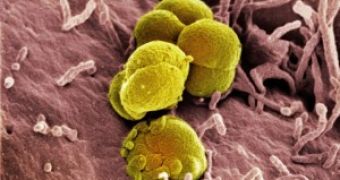The news just broke that, according to a study published in the Journal of the American Medical Association, a drug-resistant strain of gonorrhea has now arrived in North America.
Up until now, this drug-resistant strain of this otherwise common medical condition was only reported in the United Kingdom, Austria, France, Norway, and Japan.
However, physicians working at a medical clinic in Toronto have recently found that, despite their administering proper treatment to as many as 133 patients who sought help after contracting this bacterium, 9 still tested positive for said disease after the treatment period had come to an end.
Sources explain that, for the time being at least, this STD is treated with the help of a class of antibiotics known as cephalosporins.
However, as these clinical cases have shown, the virus disease is beginning to develop immunity to them, which is why some cannot help but wonder whether or not there will come a time when this disease will become incurable.
Despite the cephalosporins' failure to destroy the bacterium, the doctors in charge of looking after these individuals argue that they ultimately managed to treat the patients using an injectable antibiotic known as ceftriaxone.
Seeing how the bacterium is likely to soon grow resistant to this drug as well, and begin threatening public health in this part of the world, doctors are urging pharmaceutical companies to do their best in developing and testing new antibiotics.
Several studies have shown that as many as 700,000 Americans become sick with gonorrhea on a yearly basis.
Symptoms include abdominal pain, itching and painful urination. In certain cases, the disease can translate into pregnancy complications and female infertility.
Robert Kirkcaldy, a specialist presently working with the U.S. Centers for Disease Control, made a case of how, “Clinicians must remain vigilant for cephalosporin treatment failures and report suspected cases to the local or state health department.”

 14 DAY TRIAL //
14 DAY TRIAL //